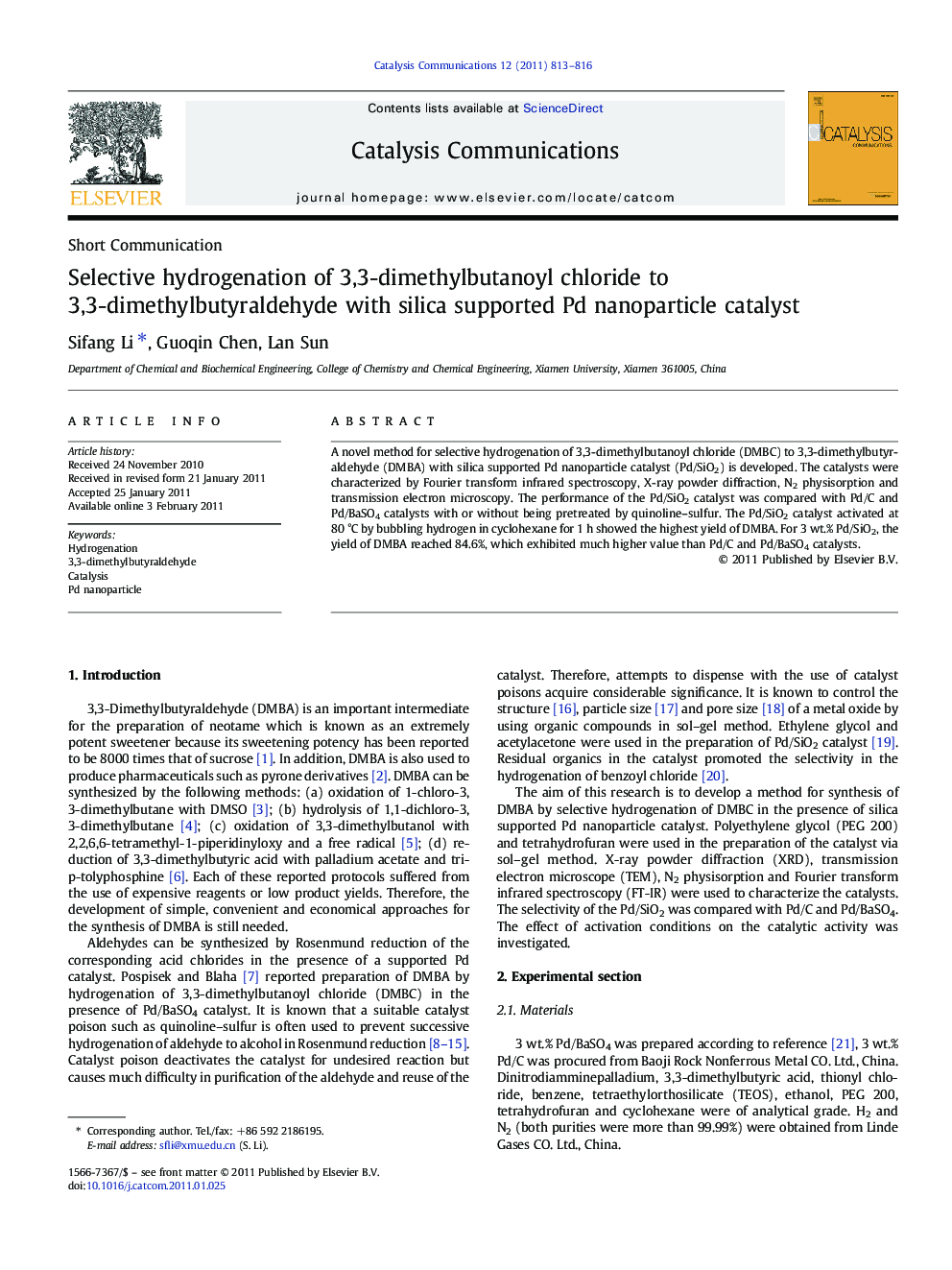| Article ID | Journal | Published Year | Pages | File Type |
|---|---|---|---|---|
| 50811 | Catalysis Communications | 2011 | 4 Pages |
A novel method for selective hydrogenation of 3,3-dimethylbutanoyl chloride (DMBC) to 3,3-dimethylbutyraldehyde (DMBA) with silica supported Pd nanoparticle catalyst (Pd/SiO2) is developed. The catalysts were characterized by Fourier transform infrared spectroscopy, X-ray powder diffraction, N2 physisorption and transmission electron microscopy. The performance of the Pd/SiO2 catalyst was compared with Pd/C and Pd/BaSO4 catalysts with or without being pretreated by quinoline–sulfur. The Pd/SiO2 catalyst activated at 80 °C by bubbling hydrogen in cyclohexane for 1 h showed the highest yield of DMBA. For 3 wt.% Pd/SiO2, the yield of DMBA reached 84.6%, which exhibited much higher value than Pd/C and Pd/BaSO4 catalysts.
Graphical AbstractFigure optionsDownload full-size imageDownload as PowerPoint slideResearch highlights► DMBA was synthesized with high yields via selective hydrogenation of DMBC. ► The yield of DMBA by Pd/SiO2 is much higher than that by Pd/C and Pd/BaSO4 catalysts. ► Pd/SiO2 activated in cyclohexane has smaller Pd size than that without a solvent. ► Pd/SiO2 activated in cyclohexane has a very narrow Pd size distribution.
